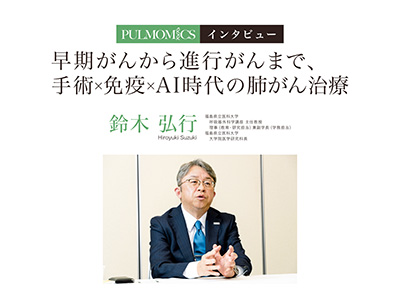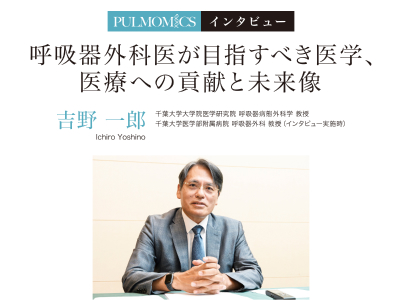- ニュース
- 添付文書
- 楽観的な人は類似の認知構造で明るい未来を描く、脳fMRIで解明-神戸大ほか
- 神戸大学は、楽観的な人々は未来を想像する際に、類似した情報処理を行っている...
- 読了時間:約3分50秒
2025年08月13日 AM09:30
- 肺がん細胞多様性の治療抵抗機構解明、新たな治療標的発見-科学大ほか
- 東京科学大学は、肺がんにおけるがん細胞の多様性が治療抵抗性に関与する仕組み...
- 読了時間:約4分27秒
2025年08月13日 AM09:20
- 慢性血栓塞栓性肺高血圧症、最近10年間で死亡リスク87%減-国循
- 国立循環器病研究センターは、同センターの「慢性血栓塞栓性肺高血圧症(CTE...
- 読了時間:約2分5秒
2025年08月13日 AM09:10
- パーキンソン病、「見えない性差」を運動神経レベルで発見-広島大ほか
- 読了時間:約2分27秒
2025年08月13日 AM09:00
- ダニ舌下免疫療法の開始で、小児の入院・抗菌薬使用が減少-成育医療センター
- 読了時間:約2分29秒
2025年08月12日 AM09:30
- 日本人の微細な遺伝的差異と食習慣の関連、4万人解析で発見-東大ほか
- 読了時間:約2分26秒
2025年08月12日 AM09:20
- 「他者の痛がる声」で痛みが誘発されることを、マウスで解明-東京理科大
- 読了時間:約2分39秒
2025年08月12日 AM09:10
QLifePro医療ニュース 特集
- 早期がんから進行がんまで、 手術×免疫×AI時代の肺がん治療
- いま、免疫チェックポイント阻害薬(ICI)の効果予測にもとづく、がん免疫療...
- 2023年07月27日 AM11:00
- 呼吸器外科医が目指すべき医学、 医療への貢献と未来像
- これは呼吸器外科医のみならず全ての医師に関わってくることですが、2024年...
- 2023年05月23日 PM06:18
- 臨床に活きる・活かす基礎研究 〜ドライバー変異のその先へ
- 私は自治医科大学の卒業で、9年間の義務年限を出身地の青森で勤めました。「研...
- 2023年03月13日 PM04:00



